- Home
- About ANT
-
Products
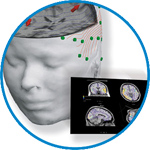
asa
asa is a highly flexible EEG/ERP and MEG analysis package with a variety of source reconstruction, signal analysis and MRI processing features.
.jpg)
eego mylab
The new frontier in multimodal brain research. With up to 16 kHz sampling rate, 256 EEG channels and unique software features, eego mylab gives you an unprecedented in-depth understanding of the human brain.
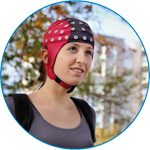
eego sports
eego sports offers complete freedom to collect high-density EEG data, bipolar EMG signals, and a variety of physiological sensor data, wherever and whenever required, with publish quality data in less than 15 minutes!
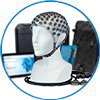
waveguard net
The waveguard net sets a new standard for research applications requiring high-density EEG data acquisition with quick preparation time, high flexibility, and subject comfort.
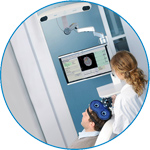
visor2
Our new and upgraded visor2 solutions integrate all the latest technologies for navigated rTMS, dual-coil navigation support, EEG-TMS recordings and pre-surgical evaluation for the highest quality in research and clinical procedures.
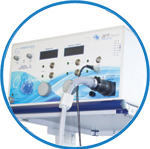
powerMAG ANT
The PowerMAG ANT 100 rTMS stimulator is designed for the specific needs of high-end TMS applications. Powerful high-frequency TMS as well as high precise single pulse and repetitive pulse protocols are combined in one single device.
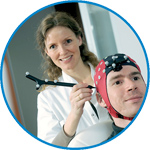
xensor
xensor offers the solution for digitization of 3D electrode positions. xensor takes care of the whole procedure; it records, visualizes and stores positions acquired with a dedicated digitizer.
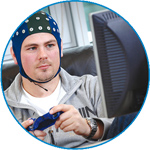
waveguard original
waveguard original is the cap solution for EEG measurements compatible with fMRI, MEG and TMS system. Use of active shielding guarantees performance in even the most demanding environments.
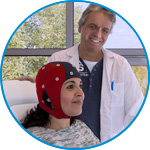
waveguard connect
waveguard connect EEG caps are a perfect match for hospitals and institutes aiming at reliable EEG, maximum uptime and great patient comfort! For optimal signal quality, the electrodes are made of pure, solid tin.
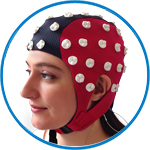
waveguard touch
waveguard touch is a dry electrode EEG cap. The unique Ag/AgCl coated soft polymer electrodes provide stable, research-grade EEG signals while maintaining subject comfort. The combination of these innovative dry electrodes and the industry-leading waveguard cap makes waveguard touch the best solution for dry EEG.
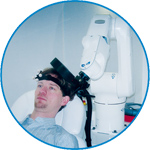
smartmove
smartmove allows planning of a complete TMS session ahead by defining stimulation sites based on anatomical MRI information and functional information like fMRI, PET or EEG/MEG.
Stay - References
- Support
- Events
- News
- Contact Us
You are here
Age-related changes in attentional refocusing during simulated driving
Age-related changes in attentional refocusing during simulated driving
We recently reported that refocusing attention between temporal and spatial tasks becomes more difficult with increasing age, which could impair daily activities such as driving (Callaghan et al., 2017). Here, we investigated the extent to which difficulties in refocusing attention extend to naturalistic settings such as simulated driving. A total of 118 participants in five age groups (18–30; 40–49; 50–59; 60–69; 70–91 years) were compared during continuous simulated driving, where they repeatedly switched from braking due to traffic ahead (a spatially focal yet temporally complex task) to reading a motorway road sign (a spatially more distributed task). Sequential-Task (switching) performance was compared to Single-Task performance (road sign only) to calculate age-related switch-costs. Electroencephalography was recorded in 34 participants (17 in the 18–30 and 17 in the 60+ years groups) to explore age-related changes in the neural oscillatory signatures of refocusing attention while driving. We indeed observed age-related impairments in attentional refocusing, evidenced by increased switch-costs in response times and by deficient modulation of theta and alpha frequencies. Our findings highlight virtual reality (VR) and Neuro-VR as important methodologies for future psychological and gerontological research.

 Read more
Read more.jpg)




